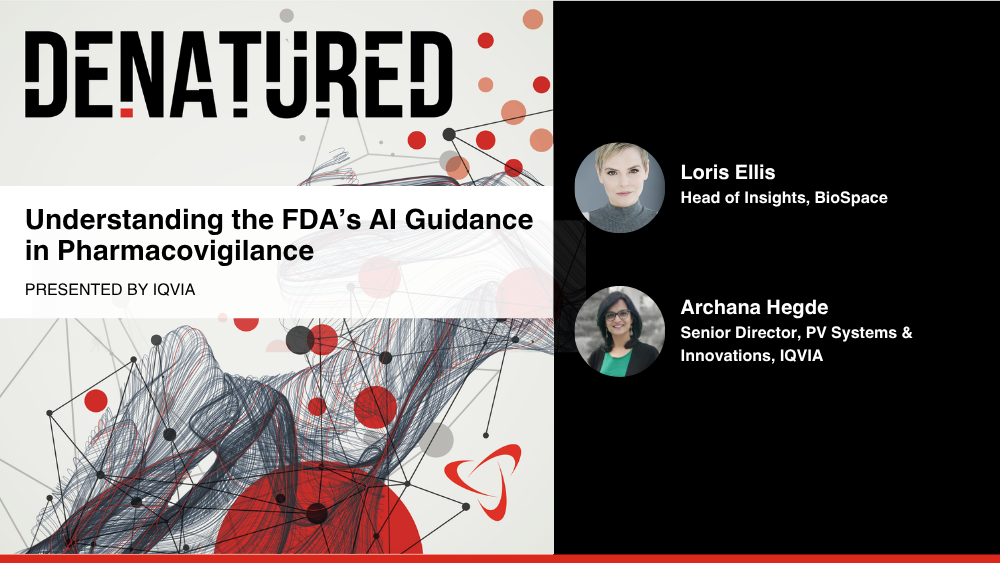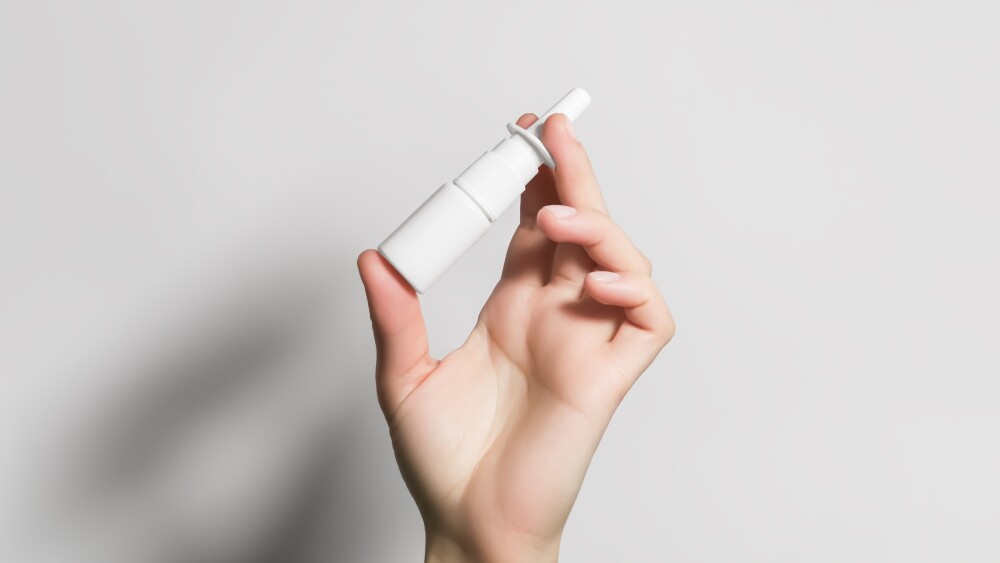For more information about Medivir, please contact:
Medivir (www.medivir.se) Rein Piir, CFO & VP Investor Relations Office: +46 8 546 831 23 Mobile: +46 708 537 292
M:Communications Europe: Mary-Jane Elliott / Emma Thompson / Amber Bielecka
Medivir@mcomgroup.com +44(0)20 7920 2330 USA: Jason Marshall +1 212 897 5497
About Medivir
Medivir is a research-based specialty pharmaceutical company focused on the development of high- value treatments for infectious diseases. Medivir has world class expertise in polymerase and protease drug targets and drug development. Medivir has a strong R&D portfolio and has recently launched its first product Xerese™/Xerclear™. Medivir’s key pipeline asset, TMC435, a protease inhibitor, is in phase 2b clinical development for Hepatitis C and is partnered with Tibotec Pharmaceuticals.
Xerese™/Xerclear™ is an innovative treatment for cold sores, which has been approved in both the US and Europe. It is partnered with GSK to be sold OTC in Europe and Russia and with Meda in North America. Medivir has retained the Rx rights for Xerclear™ in Sweden and Finland.
For more information about Medivir, please visit the Company’s website: www.medivir.se.
About TMC435 clinical trial programs
TMC435 is a once daily protease inhibitor jointly developed by Medivir and Tibotec Pharmaceuticals to treat hepatitis C virus infections. TMC435 is currently being studied in three phase 2b clinical trials (TMC435-C205, TMC435-C206 and TMC435-C215) in genotype 1 (G1) treatment-naïve and in G1 patients that failed previous IFN-based treatment. TMC435 is planned to enter phase 3 studies early 2011.
PILLAR Study (TMC435-C205) TMC435-C205 is an ongoing randomized double-blind global phase 2b study in 386 genotype-1 treatment-naïve patients. It evaluates once daily treatment of TMC435 with different doses and durations given in addition to standard of care treatment, consisting of ribavirin and pegIFNalpha-2A.
ASPIRE Study (TMC435-C206) TMC435-C206 is an ongoing randomized double-blind global phase 2b study in 463 genotype-1 treatment-experienced patients. It evaluates once daily treatment of TMC435 in with different doses of given in addition to standard of care treatment, consisting of ribavirin and pegIFNalpha-2A.
TMC435-C215 TMC435-C215 is an ongoing Japanese phase 2b study in 92 genotype-1 treatment-naïve patients. It evaluates once daily treatment of TMC435 with different doses and durations given in addition to standard of care treatment, consisting of ribavirin and pegIFNalpha-2A.
Opera-2 (TMC435-C202) TMC435-C202 is a completed phase 2a study in treatment-naïve genotype 2 to 6 HCV patients. It is a once daily treatment of TMC435 during seven days, at 200 mg. Subsequently, patients could continue with Standard of Care treatment consisting of pegylated interferon and ribavirin upon agreement with the study doctor. About HCV HCV is a blood-borne infectious disease that affects the liver.
With an estimated 170 million people infected worldwide and three to four million people newly infected each year, HCV puts a significant burden on patients and society. Chronic infection with HCV can lead to liver cancer and other serious and fatal liver diseases, and is the most common cause of liver transplant worldwide.Discovering and developing new treatments is very important to improving the standard of care for the millions of people living with this disease.
About Tibotec Pharmaceuticals
Tibotec Pharmaceuticals is a global pharmaceutical and research development company. The Company’s main research and development facilities are in Beerse, Belgium with offices in Titusville, NJ and Cork, Ireland. Tibotec is dedicated to the discovery and development of innovative HIV/AIDS and hepatitis C drugs, and anti-infectives for diseases of high unmet medical need. Tibotec Pharmaceuticals is a subsidiary of Johnson & Johnson.
1 World Health Organization (2002). Hepatitis C. Retrieved October 26, 2010 from http://www.who.int/csr/disease/hepatitis/Hepc.pdf
2 Hepatitis C: Global Prevalence. Weekly Epidemiological Record. 1997;72 : 341-8. Retrieved October 26, 2010 from http://www.who.int/docstore/wer/pdf/1997/wer7246.pdf.
3 Roche B, Samuel D., Villejuif, France. Risk factors for hepatitis C recurrence after liver transplantation. J Viral Hepat. 2007 Nov;14. Suppl 1:89-96.
Medivir Activities for Investors, Analysts and the Media at the AASLD:
Medivir will provide an update on the development of TMC435 and the data presented at AASLD on Tuesday 2 November, 2010. The meetings will be hosted by Rein Piir (CFO/IR), Bertil Samuelsson, (CSO) and Åsa Rosenquist, (Director).
Medivir Conference Call For European Analysts and Investors:
Tuesday, November 2, 2010 at 6.30am EDT / 10.30am GMT / 11.30am CET Please register for the conference call online at: http://invite.taylor- rafferty.com/_Medivir/ConferenceCall You will receive the dial-in and replay numbers for the conference call following your online registration.
Breakfast Meeting for US based Analysts, Investors and Media at AASLD:
Tuesday November 2, 2010 at 7:00am – 8.30am EDT (breakfast will be served between 7:00am – 7.30am EDT)
Venue: Colonnade Hotel, Braemore & Kenmore Room, 120 Huntington Avenue, Boston Please confirm your participation by registering on-line:
http://invite.taylor-rafferty.com/_Medivir/Breakfast/default.htm
The most common adverse events were headache and fatigue, 46 percent and 42 percent in the TMC435 groups and 51 percent and 47 percent in the placebo group respectively. There were no clinically significant differences in frequency of rash, anemia or gastrointestinal events between the TMC435 groups and placebo. Most AEs were mild to moderate in severity. AEs leading to treatment discontinuation were reported in 7.1 percent of patients in TMC435 arms and 7.8 percent in placebo arm.
In laboratory parameters, significant decreases in transaminases (ALT and AST) were observed in all treatment groups. Small and transient bilirubin elevations (direct and indirect) were seen in the TMC435 150mg dose groups.
“With a strong heritage in virology, Tibotec is committed to improving the lives of those impacted by HCV through the development of innovative new treatment regimens,” said Greg Fanning PhD, head of hepatitis C research and development at Tibotec. “TMC435 is an important component of our growing HCV pipeline and we are encouraged by the results of the interim analysis presented at the AASLD meeting.”
TMC435 is also being studied in HCV genotype-1 treatment-experienced patients who have failed treatment with peg-interferon and ribavirin. The ASPIRE study (Antiviral STAT-C Protease Inhibitor Regimen in Experienced patients; TMC435-C206; NCT00980330) is an ongoing global phase 2b randomized, double-blind, placebo controlled study in 463 patients.
In addition to the late-breaker oral presentation described above, data on TMC435 has been presented in 4 posters at AASLD:
278. “In vitro studies investigating the mechanism of interaction between TMC435 and hepatic transporters.” M.T. Huisman
812. “Virologic analysis of genotype-1-infected patients treated with once-daily TMC435 during the Optimal Protease inhibitor Enhancement of Response to Therapy (OPERA)-1 study.” O. Lenz
895. “A Phase IIa, open-label study to assess the antiviral activity of TMC435 monotherapy in patients infected with HCV genotypes 2–6.” C. Moreno
1873. “Pharmacokinetic-pharmacodynamic analyses of TMC435 in patients infected with Hepatitis C Virus (HCV) genotypes 2 to 6.” V. Sekar
treatment groups and placebo. TMC435, a hepatitis C protease inhibitor, dosed once daily (q.d.) is being developed jointly by Tibotec Pharmaceuticals and Medivir.
The PILLAR study [Protease Inhibitor TMC435 trial assessing the optimaL dose and duration as once daiLy Anti-viral Regimen] (TMC435-C205; NCT00882908) is an ongoing, five-arm, global phase 2b randomized, double-blind, placebo controlled study in 386 treatment-naive patients. TMC435 was administered in doses of 75mg or 150mg q.d. for either 12 weeks or 24 weeks in combination with 24 weeks of peg-interferon and ribavirin (PR). Patients in the placebo arm receive 24 weeks of placebo plus peg-interferon and ribavirin followed by 24 additional weeks of peg-interferon and ribavirin treatment. The primary endpoint of the study is sustained virologic response at Week-72 (SVR24). The PILLAR study is being conducted in 13 countries in Europe, North America, and Australasia.
Patients receiving TMC435 were allowed to stop all treatment at week 24 when a) HCV RNA levels < 25 IU/mL at week 4 and b) HCV RNA < 25 IU/mL levels at weeks 12, 16 and 20. Patients who did not meet the above response-guided criteria continued with peg-interferon and ribavirin until Week-48. TMC435 demonstrated potent antiviral activity, at week 4 (rapid virologic response (RVR)) and at week 12 (complete early virologic response (cEVR)) HCV RNA was undetectable (<25IU/ml) for the majority of patients. The viral breakthrough rate was 4.9 percent in the TMC435 treatment groups.
“Chronic infection with HCV is a leading cause of cirrhosis, liver cancer, and liver transplantation worldwide” said Dr Michael W. Fried M.D., lead clinical investigator and Professor of Medicine, Director of Hepatology, University of North Carolina at Chapel Hill. “We are extremely encouraged by these data for TMC435."
The goal of HCV treatment is to achieve SVR24, which means the virus remains undetectable in patients’ blood six months after they have finished treatment. Patients who achieve SVR are considered cured.
The current standard of care for HCV, pegylated interferon combined with ribavirin, may cause debilitating side effects and cures only about half of patients starting therapy for the first time.
Huddinge, Sweden - Medivir AB (OMX:MVIR), the research-based speciality pharmaceutical company focused on the development of high-value treatments for infectious diseases, notes that its development partner, Tibotec Pharmaceuticals, has announced the results of a Week-24 planned interim analysis of the Phase 2 response-guided PILLAR study for TMC435, Medivir’s key pipeline asset, a hepatitis C protease inhibitor dosed once-daily. The study was conducted in treatment-naïve patients with chronic genotype 1 Hepatitis C virus (HCV) and is part of a late-breaker oral presentation at the 61st Annual Meeting of the American Association for the Study of Liver Diseases (AASLD) in Boston, MA., USA.
Highlights of the data:
- 79% to 86% of patients were able to stop all therapy at week-24
- No relevant differences for adverse events between TMC435 treatment groups and placebo
Commenting on the announcement by Medivir’s development partner, Tibotec, Ron Long, Chief Executive of Medivir, said: “We are very pleased to have such exciting TMC435 data presented by our partner, Tibotec, at the AASLD. The data announced shows the significant impact that TMC435 could have on the way we treat hepatitis C.”
Please note that Medivir will be hosting meetings for Investors, Analysts and the Media at the AASLD (see end of press release).
Tibotec released the following statement on the results on Saturday 30th October:
Week 24 interim results from phase 2b PILLAR study to be presented as late-breaker at AASLD
- Data show high antiviral activity, safety and tolerability comparable to placebo
Boston, MA. Saturday 30th
October 2010 – Tibotec Pharmaceuticals (Tibotec) today will present the results of a Week-24 planned interim analysis of the phase 2 response-guided PILLAR study in treatment-naïve patients with chronic genotype 1 hepatitis C virus (HCV) as part of a late-breaker oral presentation at the 61st
Annual Meeting of the American Association for the Study of Liver Diseases (AASLD) in Boston, MA., USA.
The results showed that in the four TMC435 treatment groups between 79 and 86 percent of patients were able to stop all therapy at Week-24, according to the response criteria defined in the study protocol. There were no relevant differences for adverse events between TMC435




